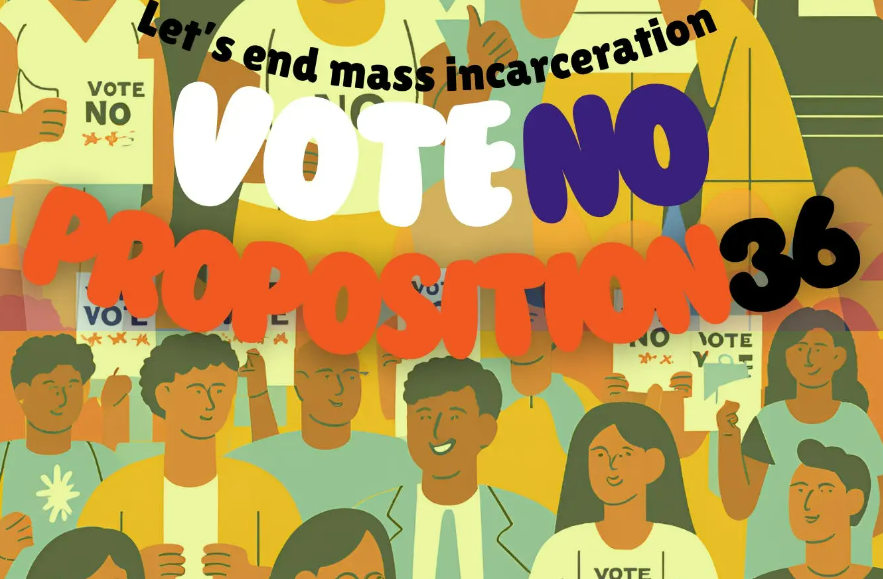Divisions Deepening Among Prop 36 Proponents
Alliance pushing California’s "tough-on-crime" Prop 36 is unraveling

Proposition 36, on the ballot this November for California voters, resurrects the same failed approaches of punishment, prison, jail, and mandatory minimums that put California on the path to mass incarceration decades ago.
As a result of those "tough on crime" policies of the pat, California prisons were overpopulated by 180 PERCENT. Accordingly, the United States Supreme Court ruled that “the California prison medical care system is broken beyond repair,” resulting in an “unconscionable degree of suffering and death.”
As part of the effort to comply with the SCOTUS order, Prop 47, passed in 2014 by California voters, classified certain crimes as misdemeanors, changed resentencing laws, and created the Safe Neighborhoods and Schools Fund to support rehabilitation programs and fund drug and mental health treatment. Since implementation, Prop 47 has saved taxpayers over $816 million through reduced incarceration costs.
Now, proponents of Prop 36 want California voters to forget all of this and roll back the progress made toward decarceration under the guise of "increased crime," which is a right-wing myth debunked by actual data provided by the FBI.
Yet even former supporters of Prop 36 don't believe in the measure. In fact, some groups that were crucial to qualifying Prop 36 for the ballot are now questioning how involved they want to be in the measure’s future, or whether they want to be involved at all.
A recent report in Politico, "How the Alliance Behind California's Prop 36 Fractured," describes how some of the business interests that paid to put Prop 36 on the ballot are considering whether to divorce the prosecutors running the campaign to pass it.
From the Politico reporting:
While the national chains and other business groups welcomed offers by Gov. Gavin Newsom to address the companies’ theft concerns through compromise legislation, the prosecutors took a hard line against any possible deal. At a crucial moment in the negotiations, private correspondence between the Democratic governor’s chief of staff and the head of the California District Attorneys Association leaked to the media, an apparent attempt to embarrass the governor widely believed to have originated with the prosecutors (a claim they have denied).
Some members of the coalition that initially helped fund the costly effort to sell the measure, including Target and Home Depot, have not provided any further funding since it qualified for the ballot. Others are being pursued by a new, rival pro-Prop 36 committee aimed at cultivating support from moderate Democrats. Its presence could pose a fundraising and messaging challenge for the main Yes on 36 committee.
“Once you strip away the retailers, their money and their messaging, what’s left?” said Anthony York, spokesman for the No on 36 campaign. “It’s the same people who pushed three strikes legislation, who opposed Prop 47, it’s the same prison industrial complex that’s been behind this for decades.”
If some of the initial supporters of this prison spending scam - some of the biggest retailers in the country who pushed for the legislation to begin with - don't believe in it enough to fund it with their corporate dollars - then why should California taxpayers believe in it?
Californians deserve real and compassionate solutions to homelessness, substance use, and mental health. Prop 36 will not do that, and will worsen the racial and economic inequities that plague countless Black and brown Californians. Precious state budget dollars would flow toward mass incarceration policies that have failed California time and time again.
No. On. Prop. 36.
Read the full report "How the Alliance Behind California's Prop 36 Fractured" at Politico.










